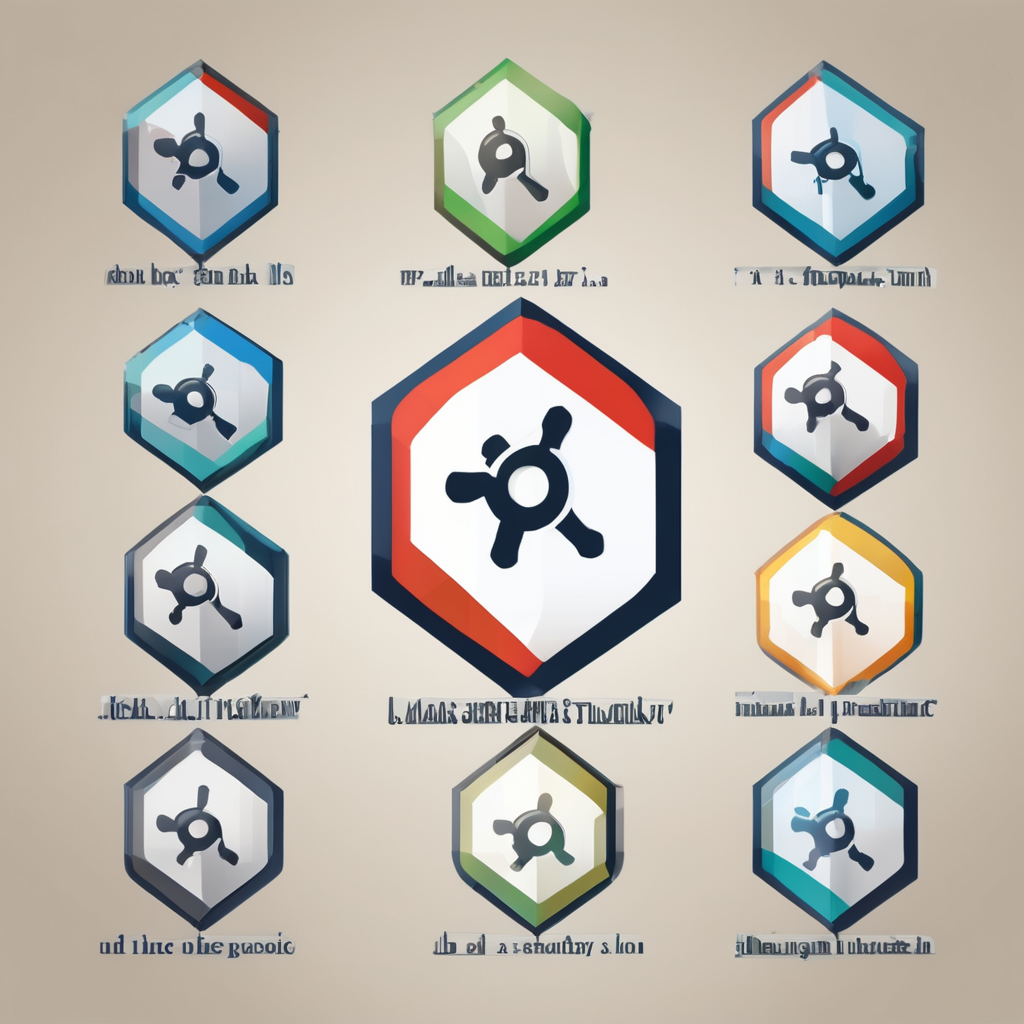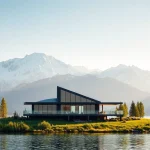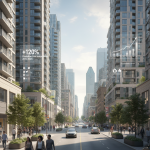The Pivotal Role of Sustainability in the Future of UK Real Estate
As the world grapples with the challenges of climate change, the real estate sector in the UK is undergoing a significant transformation, with sustainability emerging as a cornerstone of its future. This shift is not just a response to environmental concerns but also a strategic move to ensure long-term viability and value in the property market.
The Imperative of Sustainability
Sustainability in real estate is no longer a niche concept; it has become an imperative. The UK government’s commitment to achieving net zero carbon emissions by 2050 has set a clear direction for the industry. This goal is not just about reducing carbon emissions but also about creating a built environment that is environmentally friendly, socially responsible, and economically viable.
In parallel : Unlock Profitable Rural UK Rental Investments: Your Comprehensive Guide to Long-Term Success
Regulatory Drivers
The UK government has introduced several regulations and initiatives to drive sustainability in the real estate sector. For instance, the Minimum Energy Efficiency Standards (MEES) require landlords to ensure that their properties meet a minimum energy efficiency rating. Similarly, the Future Homes Standard aims to ensure that all new homes are zero carbon ready by 2025.
"The UK's net zero target is a game-changer for the real estate sector. It's not just about compliance; it's about creating a sustainable future for our buildings and communities," said Sarah Jones, CEO of a leading UK property development company.
Energy Efficiency and Renewable Energy
Energy efficiency and the integration of renewable energy are critical components of sustainable real estate. Buildings are significant consumers of energy, and making them energy efficient can substantially reduce carbon emissions.
Also to read : Vallourec stock: analyzing shareholding trends and implications
Energy-Efficient Buildings
Energy-efficient buildings are designed to minimize energy consumption through advanced insulation, smart building technologies, and the use of renewable energy sources such as solar and wind power. For example, the use of Building Information Modelling (BIM) can help architects and engineers design buildings that are optimized for energy efficiency.
| Feature | Description | Benefits |
|---|---|---|
| Advanced Insulation | High-performance insulation materials | Reduced heat loss, lower energy bills |
| Smart Building Technologies | Automated systems for heating, cooling, and lighting | Real-time energy monitoring, optimized energy use |
| Renewable Energy Systems | Solar panels, wind turbines | Reduced reliance on fossil fuels, lower carbon emissions |
Case Study: The Shard
The Shard in London is an exemplary case of a sustainable building. This iconic skyscraper incorporates several green features, including a combined heat and power system, solar shading, and a highly efficient cooling system. These features not only reduce the building’s carbon footprint but also enhance the comfort and productivity of its occupants.
Environmental, Social, and Governance (ESG) Criteria
ESG criteria have become essential for property investment decisions. Investors are increasingly looking for assets that not only generate financial returns but also contribute to social value and environmental sustainability.
ESG in Property Investment
ESG factors help investors assess the long-term risks and opportunities associated with a property. For instance, a building with high energy efficiency and low carbon emissions is more likely to attract tenants and retain its value over time.
"ESG is no longer a 'nice to have'; it's a 'must have' for any serious property investor. It's about ensuring that our investments are resilient and sustainable in the long term," said Mark Thompson, a leading real estate investment analyst.
Social Value and Community Impact
Sustainable real estate is not just about environmental sustainability; it also involves creating social value and positive community impact.
Community Engagement
Developers are increasingly engaging with local communities to ensure that new developments meet their needs and enhance their quality of life. For example, the inclusion of community spaces, green areas, and affordable housing can significantly improve the social fabric of a neighborhood.
Affordable Housing
Affordable housing is a critical aspect of sustainable real estate. Developers are working with government agencies and non-profit organizations to provide housing that is not only affordable but also energy efficient and eco-friendly.
Market Trends and Investment Strategies
The market for sustainable real estate is growing rapidly, driven by increasing demand from tenants, investors, and regulatory pressures.
Green Premium
Properties with green certifications such as BREEAM (Building Research Establishment Environmental Assessment Method) or LEED (Leadership in Energy and Environmental Design) often command a premium in the market. This is because these certifications signify higher energy efficiency, lower operating costs, and a better quality of life for occupants.
Impact of Climate Change
Climate change is a significant risk factor for real estate investments. Properties located in flood-prone areas or those with inadequate climate resilience measures are likely to see a decline in value. Investors are therefore focusing on properties that are climate-resilient and have robust adaptation strategies.
Practical Insights and Actionable Advice
For those looking to invest in or develop sustainable real estate, here are some practical insights and actionable advice:
- Conduct Thorough ESG Assessments: Before investing in a property, conduct a comprehensive ESG assessment to identify potential risks and opportunities.
- Invest in Energy Efficiency: Implement energy-efficient measures such as advanced insulation, smart building technologies, and renewable energy systems.
- Engage with Local Communities: Work closely with local communities to ensure that developments meet their needs and enhance their quality of life.
- Stay Updated with Regulations: Keep abreast of the latest regulations and standards related to sustainability in real estate.
Sustainability is not just a trend in the UK real estate sector; it is a fundamental shift that is here to stay. As the industry moves towards a net zero future, it is crucial for developers, investors, and estate agents to integrate sustainability into their strategies. By doing so, they can create a built environment that is environmentally friendly, socially responsible, and economically viable.
In the words of Jane Smith, a sustainability expert in the real estate sector:
"Sustainability is the future of real estate. It's about creating buildings and communities that thrive not just today but for generations to come."






